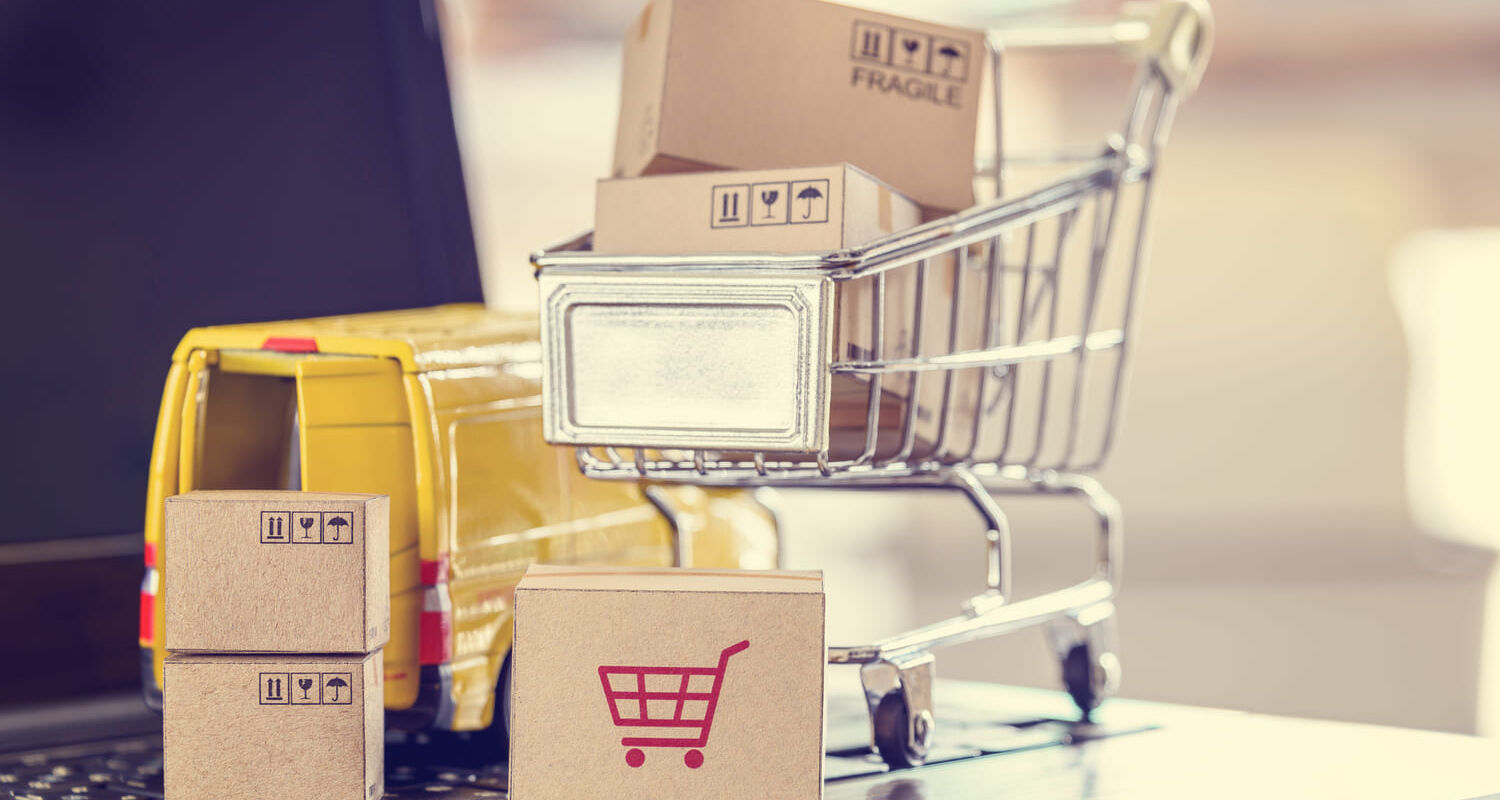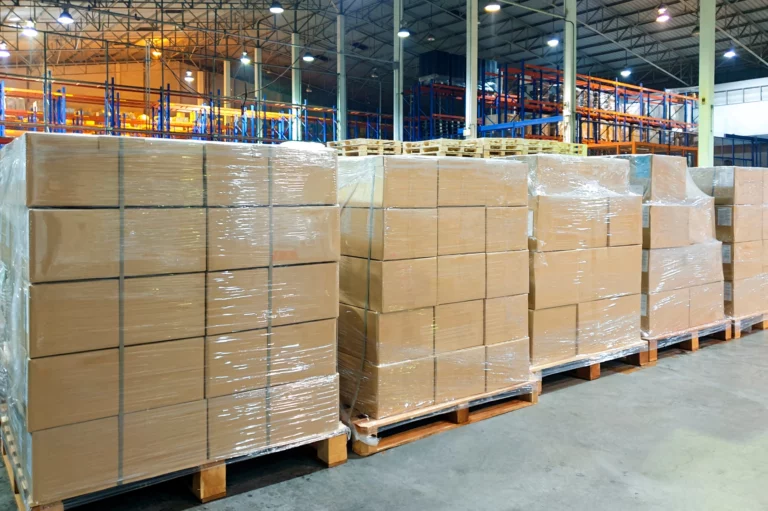Best Ecommerce Shipping Solutions: Choosing the Right Shipping & Logistics Aggregator

Modern shoppers expect fast shipping, real‑time tracking and painless returns. For ecommerce brands juggling multiple carriers and fulfillment centers, meeting those expectations can be overwhelming. Shipping and logistics aggregators solve this problem by connecting your online store to dozens of carriers and automating everything from rate shopping to label printing. When you select the right ecommerce shipping solutions, you can reduce costs, improve delivery speed and delight customers.
Why Ecommerce Brands Need a Shipping Aggregator
Manual shipping processes often lead to higher costs, slow delivery and operational inefficiencies. Without a centralized system, merchants miss out on discounted carrier rates, misroute orders and spend hours on data entry. A shipping aggregator consolidates carriers and services into one dashboard, allowing you to compare rates, print labels and track all shipments in real time. The result is reduced shipping expenses, faster deliveries and streamlined operations.
What Is an Ecommerce Shipping Solution?
An ecommerce shipping solution (also called a logistics aggregator) is software that integrates your online store with multiple carriers. Instead of negotiating rates separately with USPS, FedEx, DHL or regional couriers, you can compare prices and transit times in one place. Leading platforms offer:
- Consolidated carrier options: access to discounted rates and the ability to choose the fastest or cheapest service for every order.
- Centralized tracking: customers receive real‑time updates and branded tracking pages.
- Automated workflows: batch label creation, shipping rules and automated notifications reduce human error.
- Scalability: manage peak seasons and high order volumes without hiring more staff.
Key Features to Look for in Ecommerce Shipping Solutions
Choosing the right platform means evaluating more than just price. Look for the following must‑have features:
Multi‑Carrier Support
A good aggregator lets you access many carriers—USPS, FedEx, DHL, UPS and hundreds of regional couriers. Platforms like Easyship advertise up to 550+ courier services and over 100 tech integrations, while ShipStation supports 400+ integrations and lets merchants shop rates across carriers. The more carrier options available, the easier it is to compare transit times and rates for every order.
Automated Rate Comparison
Real‑time rate shopping prevents overspending and ensures each order ships via the most economical route. ShipStation’s rate shopping feature surfaces the best shipping rate every time, and Easyship’s dashboard allows merchants to compare discounted rates across hundreds of couriers.
Seamless Platform Integration
Your shipping software should integrate with popular ecommerce platforms like Shopify, WooCommerce, BigCommerce, Magento and marketplaces such as Amazon and eBay. ShipStation provides 400+ integrations, including marketplace and shopping‑cart platforms, and most leading solutions offer APIs for custom connections.
Advanced Tracking & Notifications
Customers expect to track packages easily. Look for branded tracking pages, automated notifications and centralized shipment monitoring. Easyship offers branded tracking and pre‑paid returns, while AfterShip specializes in centralized tracking and real‑time delivery updates.
Returns Management
Efficient reverse logistics is critical for ecommerce. Solutions such as ShipStation provide branded return portals that turn returns into exchanges, and Shippo offers return label management for hassle‑free returns (based on our research). Automated return processing reduces customer friction and frees up your support team.
Analytics & Reporting
Insightful dashboards help you monitor shipping performance, carrier efficiency and fulfillment costs. ShipStation’s analytics dashboard keeps merchants up to date with customer engagement metrics. Look for reporting tools that break down costs, transit times and return rates to enable data‑driven decisions.
International Shipping Support
If you sell internationally, your platform must handle customs forms, duties and tax calculations. Easyship includes tax and duty calculation tools and a global fulfillment network, while FedEx offers predictable flat‑rate international shipping and services to 195 countries. Ensure your solution can automatically generate customs documentation and calculate landed costs.
Top Ecommerce Shipping Solutions & Aggregators (2025)
1. ShipStation
ShipStation is a leading multi‑carrier shipping software known for its rate shopping, label automation and 400+ integrations. Merchants can print labels 15× faster than manual processes, manage orders across all stores and access deep carrier discounts. Additional features include inventory and warehouse management, branded tracking pages and an analytics dashboard.
Ideal for: Small to enterprise businesses that need a scalable, feature‑rich platform with robust integrations.
2. Shippo
Shippo offers a developer‑friendly API and simple interface. It provides discounted shipping rates, bulk label printing, easy ecommerce platform integrations and real‑time tracking notifications (see original research). Shippo’s flexible pricing and return label management make it attractive for startups and growing brands.
Ideal for: Businesses looking for a lightweight, API‑driven solution without heavy upfront costs.
3. Easyship
Easyship is built for international ecommerce. It lets merchants compare 550+ courier services, access discounted rates and calculate duties and taxes automatically. Automation tools include batch label printing, shipping rules and branded tracking pages. The platform integrates with major carts and offers a global fulfillment network.
Ideal for: Brands with cross‑border ambitions that need built‑in tax & duty calculations and extensive courier options.
4. AfterShip
Primarily known for tracking, AfterShip connects to multiple carriers to provide centralized shipment tracking and real‑time delivery notifications Its branded tracking pages enhance post‑purchase experience and it integrates with leading ecommerce platforms.
Ideal for: Merchants focused on customer experience and post‑purchase engagement.
5. Ordoro
Ordoro is an all‑in‑one platform that combines shipping, inventory management and dropshipping. Features include bulk label creation, multi‑carrier support, inventory syncing across channels and automation rules. Ordoro’s analytics help merchants optimize operations and unify shipping and inventory management.
Ideal for: Growing brands that need to manage both inventory and shipping from one dashboard.
6. FedEx (for direct carrier solutions)
FedEx provides a range of domestic and international shipping services with predictable pricing. Businesses can open a free FedEx account to earn rewards and request refunds if shipments arrive late. FedEx One Rate® offers flat‑rate shipping for predictable costs. The company also offers day‑definite domestic services (Ground, Express Saver, 2Day, Standard Overnight, Priority Overnight) and international options to 195 countries.
Ideal for: Businesses that prefer to work directly with a single carrier and need a mix of domestic and international services with predictable rates.
7. ShipBob
ShipBob operates as a global 3PL offering end‑to‑end fulfillment and a full‑stack platform (OMS + IMS + RMS + analytics). Its educational resources stress the importance of offering a combination of fast and affordable shipping methods-2‑day shipping, same‑day delivery, overnight and international options-to reduce cart abandonment. ShipBob also highlights cost factors such as carrier fees, packaging, fulfillment labor and overhead.
Ideal for: Brands seeking a fulfillment partner who can store inventory, pick & pack orders and ship through various carriers while providing strategic guidance.
How Shipping Solutions Drive Ecommerce Success
Adopting the right shipping solution has a direct impact on customer satisfaction and profitability:
- Cost optimization: Multi‑carrier rate comparison helps merchants choose the most economical option without sacrificing speed. FedEx’s flat‑rate services provide predictable pricing for budget control.
- Faster delivery: Access to multiple carriers and distribution centers allows you to offer 2‑day or even same‑day shipping, reducing cart abandonment and boosting conversion.
- Improved customer experience: Branded tracking pages, proactive notifications and easy returns enhance customer satisfaction.
- Scalability: Automation and integrations help you handle seasonal spikes or rapid growth without expanding headcount.
- Simplified operations: Centralizing shipping, inventory and returns management frees up time for strategic tasks.
Best Practices for Choosing an Ecommerce Shipping Solution
- Evaluate carrier options: Ensure the platform supports your preferred carriers and offers competitive discounts.
- Check integrations: Seamless integration with your ecommerce platform and marketplaces is essential for real‑time data sync and automation.
- Analyze pricing models: Look for transparent pricing. Flat‑rate shipping options (e.g., FedEx One Rate®) can simplify budgeting.
- Prioritize customer experience: Select solutions that offer branded tracking, proactive notifications and smooth returns management.
- Assess support and reliability: Reliable customer support is crucial during peak seasons or disruptions. Consider providers with extensive help centers, live chat and knowledge bases.
Conclusion
Investing in the right ecommerce shipping solution is more than a logistics decision, it’s a growth strategy. By leveraging multi‑carrier aggregators, international shipping tools and automated workflows, online retailers can reduce costs, offer fast and reliable delivery and enhance customer loyalty. Evaluate your business needs, compare leading platforms and choose a solution that scales as you grow.
Frequently Asked Questions (FAQ) – OLIMP Warehousing
Q: How do I set up global ecommerce shipping solutions?
Choose a platform that supports international carriers and handles customs documentation automatically. Solutions like Easyship provide tax and duty calculators, while FedEx offers flat‑rate international services to 195 countries.
Q: Which ecommerce platform has the best shipping?
The best platform depends on your needs. ShipStation excels in automation and integrations, Easyship offers extensive courier options, and ShipBob combines fulfillment with shipping software.
Q: What’s the best freight shipping option for ecommerce retailers?
For heavy or oversized shipments (>150 lbs), platforms like FedEx Freight offer economy and priority services with transit times of 1–6 business days. Some shipping software also partners with freight carriers to provide discounted rates.
Q: What is the best shipping solution for ecommerce stores?
Solutions like ShipStation and Easyship are popular for multi‑carrier rate shopping and automation. Evaluate features like carrier support, integrations and return management to decide which fits your store.
Q: What ecommerce integrations streamline shipping and carrier management?
Look for platforms with hundreds of integrations—ShipStation supports 400+ marketplaces and shopping carts, while Easyship offers 100+ tech integrations and a shipping API.
Q: Top platforms for fulfillment, shipping logistics and ecommerce?
ShipStation, Easyship, Shippo, Ordoro and AfterShip are leading aggregators. For direct fulfillment, ShipBob and FedEx provide warehousing and carrier services.
You may be interested in

Ecommerce Warehouse: What Is It and How to Find One?
In today’s fast-paced digital marketplace, efficient ecommerce warehousing is pivotal for timely order fulfillment and customer satisfaction. Whether you’re a budding online retailer or an established ecommerce giant, understanding and selecting the right warehousing solution can significantly impact your business’s success. What Is An Ecommerce Warehouse? An ecommerce warehouse is a storage facility that holds […]

Finding the Right Distribution Warehouse: An Essential Guide for Your Business
Choosing the right distribution warehouse is a pivotal decision that can make or break your supply chain. The warehouse you select will directly affect your delivery speeds, shipping costs, and customer satisfaction. With so many options (from local facilities to nationwide 3PL networks), it’s essential to know what to look for. This guide explains what […]

Intermodal Shipping: The Smart, Efficient Way to Move Freight
Intermodal shipping refers to moving freight by two or more transportation modes (truck, rail, ship, etc.) using standardized containers. Cargo stays sealed inside its container during transfers, reducing handling and speeding up delivery. This containerized approach cuts costs and transit time for long-distance shipments, making intermodal freight shipping a cost-efficient, secure method to move goods. […]
Ready to streamline your warehousing needs?
Request a quote today and discover how OLIMP's tailored solutions can optimize your operations